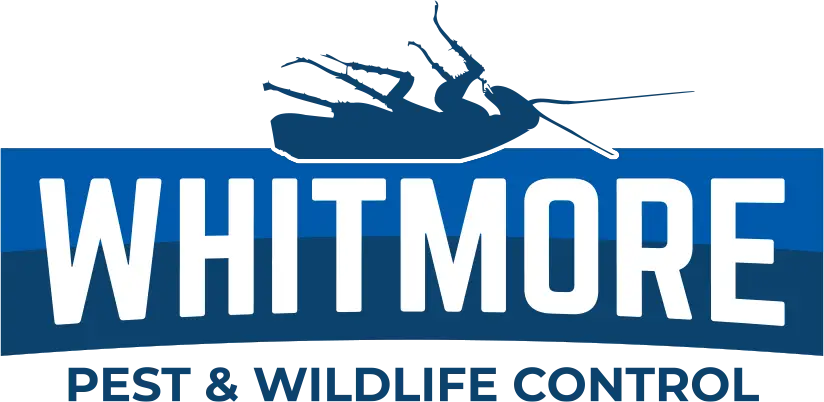Do Possums Have Rabies?

Are you waking up to possum-related shenanigans in your backyard? Do you suspect that your new "pet" possum might have rabies? Well, you're in luck because today's blog post is all about possums, rabies, and how to successfully remove these little critters from your property.
Let's Start With the Basics: What Is a Possum?
Maybe you've seen one scurrying across your backyard late at night, its eyes glowing in the darkness. You probably thought it was nothing more than an overgrown rat—but no, it’s actually a rather fascinating animal!
Possums are marsupials that are native to Australia, but can now be found all over the world due to human intervention. They have a wide range of appearances depending on species and geographic location—with some looking like cute little rodents and others resembling larger animals like cats or dogs. Generally, they have pointed ears, sharp claws, and long tails.
But what about the question on everyone's mind: Are possums dangerous? The answer is…it depends! For the most part, these shy creatures are pretty harmless and will try to avoid humans as much as possible. That said, they can become quite defensive if they feel threatened or cornered—so it’s best to give them their space just in case.
And did you know that possums are marsupials? That's right, they have a pouch for their babies just like kangaroos! Plus, most species of possums also have prehensile tails which allow them to hang from branches while they search for food and shelter. How cool is that?! They mainly eat fruits and insects but can sometimes scavenge for scraps left by humans too.
So, Let's Cut Straight to It - Do Possums Have Rabies?
Many people wonder if possums carry rabies. The short answer is yes, possums can carry diseases such as tuberculosis, leptospirosis, and, yes, rabies. However, it's important to note that the likelihood of a possum having rabies is quite low.
In fact, according to the Centers for Disease Control and Prevention (CDC), less than 1% of all reported rabies cases are in opossums. So before you start imagining a horde of zombie possums taking over your neighborhood, it's important to keep things in perspective.
However, that doesn’t mean they can’t be carriers of the disease. It is possible that they can pick up and spread rabies from other animals, such as raccoons or skunks, which are much more likely to have the virus than possums. Although it is rare for a possum to have rabies, it is important to be aware of the symptoms so you can take necessary precautions should you come into contact with one that may be infected.
One sign of rabies in a possum would be unusual behavior or aggression towards humans or other animals. If someone notices a normally timid creature acting aggressively then it would be wise to consider that it may be suffering from rabies and take action accordingly.
Another possibility would be if the animal appears disoriented or confused, as though it is unable to tell what direction it needs to go next or what its next course of action should be. In addition, if its movements seem uncoordinated or stiff then this could also indicate signs of infection.
If any of these symptoms are present then it is important for anyone exposed to seek medical attention immediately and make sure that their pets are vaccinated against rabies just in case there has been an exposure. Possum animal control can also help safely remove any potentially infected animal from your property so as not to put yourself and others at risk if you suspect a possum has rabies on your property.
Other Possum Diseases
You’re probably asking yourself, “Do possums carry diseases?” The short answer is yes. Aside from the well-known rabies, possums can also carry a variety of other diseases. These include Leptospirosis, Salmonellosis, Pseudotuberculosis, and Toxoplasmosis. Possums are also carriers of fleas and ticks that can spread Lyme disease, which affects both people and pets.
- Leptospirosis is an infectious bacterial disease that is spread through contact with urine from an infected animal. Symptoms of leptospirosis may include fever, headaches and chills. It can also cause liver or kidney failure as well as meningitis if left untreated.
- Salmonellosis is a bacterial infection caused by consuming food or water contaminated with the bacteria Salmonella. Symptoms usually include abdominal pain, diarrhea and vomiting and can be serious if left untreated.
- Pseudotuberculosis is another bacterial infection carried by possums which can cause abscesses and swelling in humans as well as animals such as horses and dogs. If left untreated it can lead to organ failure or death.
- Toxoplasmosis is a parasitic infection that can be passed on to humans through contact with feces from an infected animal such as a possum; however it usually only affects pregnant women and those with weakened immune systems.
If you do come into contact with one of these diseases it’s important to seek medical advice immediately so that you don’t become seriously ill!
Fortunately there are precautions you can take to protect yourself from these illnesses when coming into contact with possums: wash your hands after handling them (or any animal for that matter!) make sure any food you consume has been properly cooked/prepared using hygienic practices; regularly check your pets for fleas or ticks; wear protective clothing when handling sick animals; avoid contact with wild animals; clean any cuts or scratches thoroughly; keep your garden clean of debris where possums may nest; lastly have your pet vaccinated against rabies just in case they ever come into contact with a rabid animal!
Don't worry, you're not going to turn into a possum if you come into contact with one—but it's always better to be safe than sorry! So remember: when dealing with wild animals like possums observe caution at all times!
Steps to a Successful Possum Removal
With their acrobatic abilities and mischievous behavior, these pesky possums can be a real nuisance to homeowners.
While it may take some effort to get rid of the little critters, there are humane ways that you can remove them from your home and keep them away for good. Here are some steps to help ensure a successful possum removal:
- Identify where the possums are coming from. Start by inspecting your roof and eaves for cracks or gaps that may be providing access to the critters. Look at outdoor sheds, porches, decks and other areas around your home as well. Once you’ve identified any potential entry points, patch up any openings with steel wool or wire mesh.
- Set traps in strategic locations near those access points, but away from places frequented by children or pets. Place some bait inside such as fresh fruit or vegetables to attract the possums into the trap and lure them away from your property. Make sure to check your traps regularly – it’s important not to let trapped possums suffer unnecessarily in the sweltering summer heat!
- Relocate trapped possums far away from your property - ideally at least 5 miles away - so they cannot find their way back again. When relocating, make sure they have access to shelter such as trees or shrubs, and water nearby if possible too! If you do this right, it’ll be like trying to keep a teenager out of the fridge at a party — impossible!
- Possum-proof your property by checking for any entry points once again after trapping is over and sealing them up with heavy-duty steel wool or wire mesh when necessary. You should also trim back overhanging tree branches and bushes that could provide an easy access route for curious critters!
- Finally, make sure you don’t leave any food sources lying around that could easily attract possums back into your yard again — things like pet food bowls, compost bins and open garbage cans can all be tempting targets so make sure they are properly secured (a good way is using heavy lids).
And If All Else Fails, Who Do You Call to Remove a Possum?
Well, the answer to that depends on your specific situation. Possum animal control can handle possums if they're causing damage to your property, but if you want to ensure that the possum is removed humanely, you should contact animal removal services. These professionals are trained to handle wildlife, including possums, and will know how to safely remove them from your property.
One Last Thing: So, Where Do Possums Live?
If you're a possum lover and want to know more about these creatures, possums are known to live in wooded areas, but they can also be found near human habitation, like suburban and urban areas.
And if you're ever wondering why you see possums hanging around your garbage cans, it's because they're opportunistic eaters, eating almost anything they can find. So, don't be surprised if you find one eating your leftovers!
Q: What do possums eat?
A: Possums are omnivores and their diet includes a wide variety of plant and animal materials. They typically eat fruits, vegetables, insects, snails, small mammals, and eggs. They are also known to scavenge on carrion, or dead animals. Additionally, possums will consume pet food, birdseed and garbage if it is available.
Q: How long do possums live?
A: Possums typically live for 2-4 years in the wild.
Q: How to keep possums away?
A: To keep possums away, use deterrents such as motion-activated sprinklers, ultrasonic devices, or ammonia-soaked rags placed near potential entry points. Additionally, securing trash and pet food, and sealing off any holes or openings in your home or garden can also help prevent possums from accessing the area.
Wrap Up!
Possums may have a bad reputation for carrying diseases, but the likelihood of a possum having rabies is quite low. And when it comes to possum removal, there are humane ways to get rid of these critters and prevent them from returning.
So don't let possums ruin your peaceful backyard, call a professional and get your possum problems solved! And remember, if you ever find yourself in a situation where you suspect a possum has rabies, seek medical attention immediately. If you're looking for professional services, contact Whitmore today!

